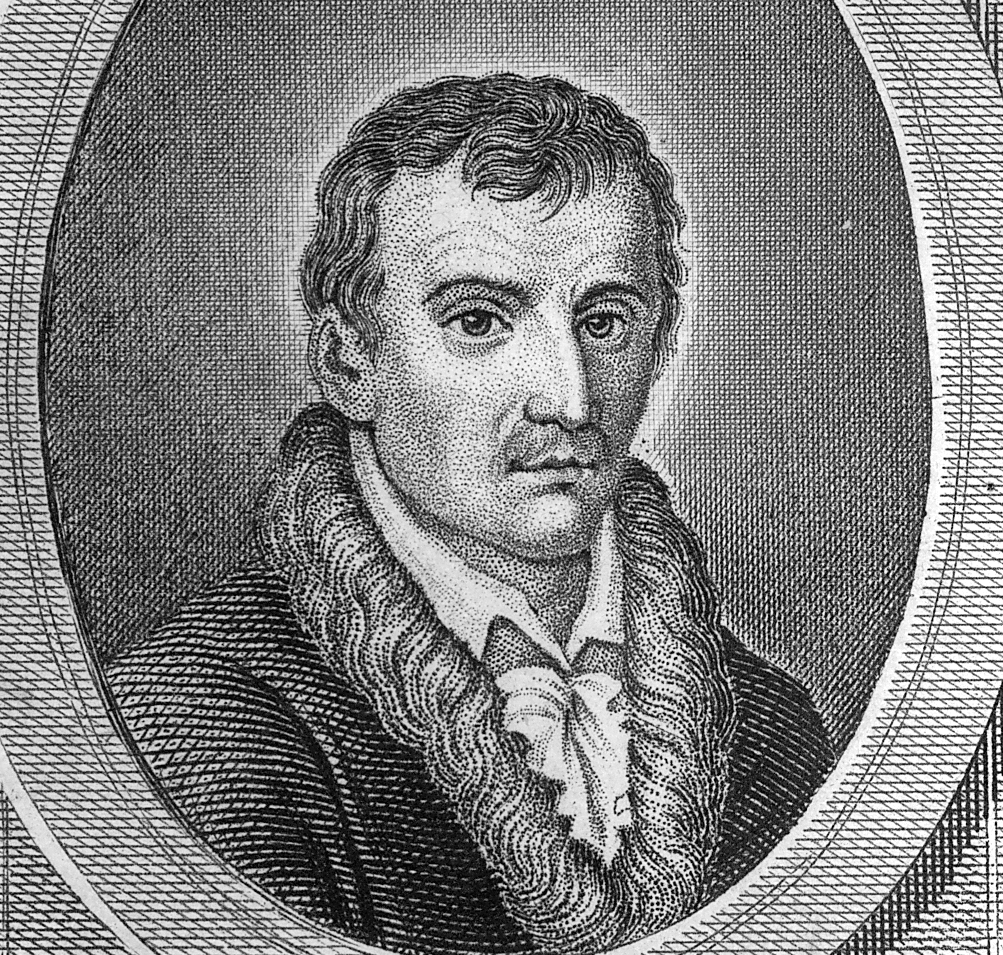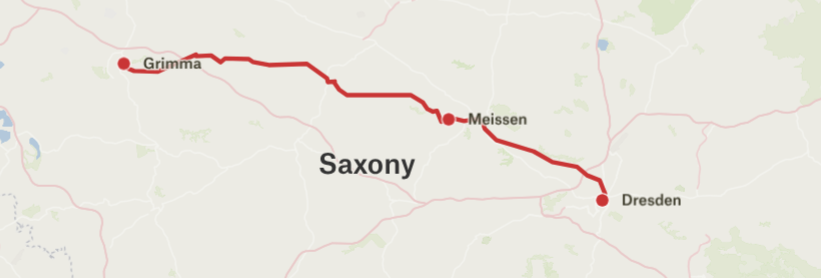
Grimma to Dresden
"I buckled on my knapsack in Grimma, and we set off"

Dresden, December 9, 1801.
I buckled on my knapsack in Grimma(1), and we set off. A caravan of good-hearted, cheerful folk accompanied us as far as the hills of the Mulde valley(2), and Friend Großmann(3) conversed at length with Friend Schnorr(4) on the mysteries of their goddess’s sanctuary, of which I, as a profane outsider, understood but little. Quietly I sought a few minutes to myself, sat down opposite Saint George’s great dragon(5) , and prayed my traveller’s prayer:
"that Heaven might grant me honest, kindly hosts and courteous gatekeepers(6) from Leipzig all the way to Syracuse, and back again by the other road to my own land; that He might preserve me from the hands of those monarchic and those demagogic benefactors of mankind, who with equal despotism clap their system upon us plain folk’s noses, as the Samoyed(7) forces a ring through the snouts of his beasts."
I looked back on that fair landscape which Melanchthon(8) already had found so lovely that he wished to live there; and I swiftly ran through in thought all the happy days I had enjoyed in the same place: toil and vexation are easily forgotten. There stood Hohenstädt(9) with its fine clusters of houses, and on the slope appeared Göschen’s delightful homestead(10) , where so often we dug, and planted, and weeded, and talked, and harvested, and ate potatoes and peaches. About the hills lay the friendly villages, and the river wound its way in curves through the gorges, where neither path nor oak tree was unknown to me.
The sun shone as warmly as in spring, and we took leave of our companions with gratitude and the brightest hope of return. Once more I looked leftwards, toward the new mill on the highest rise, which had so often marked, from our garden-house in Hohenstädt, the limit of our view across the valleys. Then we walked on quietly, down the road towards Hubertusburga(11) . In Altmügeln(12) we were received with patriarchal cordiality, treated with the friendship of youth, and sent off next morning with a beautiful melody of Goethe’s song — “Kennst du das Land?”(13) — and the warmest wishes, onward to Meissen(14), where we were welcomed with equal homeliness. If only we could summon those kind friends down to the southern coast of Sicily! The Elbe rolled in majesty between the Dresden hills. The heights gleamed, as if the buds were just about to burst once more, and the smoke rose from the river up to the old Scharfenberg(15). On the eighth of December the weather was so sultry, that it felt most refreshing when we passed from the sun into the shade of the forest.